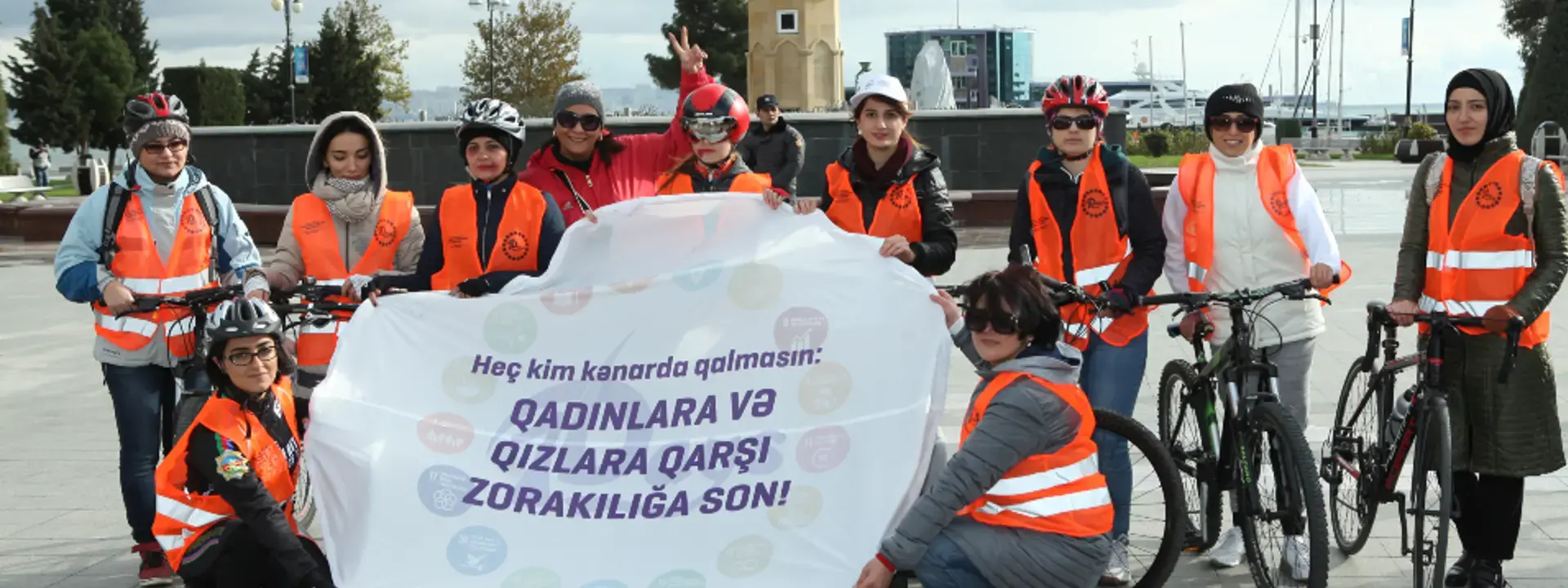World Health Organization (WHO) data from 2013 indicates that one in every three women has been beaten, coerced into sex or abused in some other way – most often by someone she knows. According to the findings of the most recent IMAGES (Men and Gender Equality Survey, 2018), 33 percent of Azerbaijani men report perpetrating violence against a partner while 32 percent of women report experiencing physical violence. A high number of women also consider that partner violence can be acceptable, with 11 to 59 percent believing that various specific circumstances justified a partner’s use of violence against a woman. The evidence also suggests that aggregate economic cost of violence against women in Azerbaijan in 2017 could amount to 1.8% of the country’s GDP.
UNFPA led advocacy efforts have already contributed to endorsement of effective legal and policy base for preventing and addressing gender based violence in Azerbaijan. However, despite these crucial efforts many women and girls still lack access to essential services that ensure their health, safety and access to justice.
UNFPA is working towards development and operationalization of multi-sectoral partnership frameworks to prevent/respond to GBV and harmful practices. This includes advocacy efforts on strengthening multi-sectoral capacities to prevent and address GBV including through guidance to improve survivors’ access to the services with a particular focus on health, justice, social services including helplines, and coordination and governance. UNFPA also plays major role in addressing GBV through its ongoing programmes on sexual and reproductive health. To ensure effective utilisation of the available GBV response services by the population as well as contribute to shifting societal perceptions on the issues concerning violence against women, UNFPA pays particular consideration to the grass roots advocacy with a focus on engaging men as allies, partners and activists for preventing and addressing GBV in Azerbaijan.


